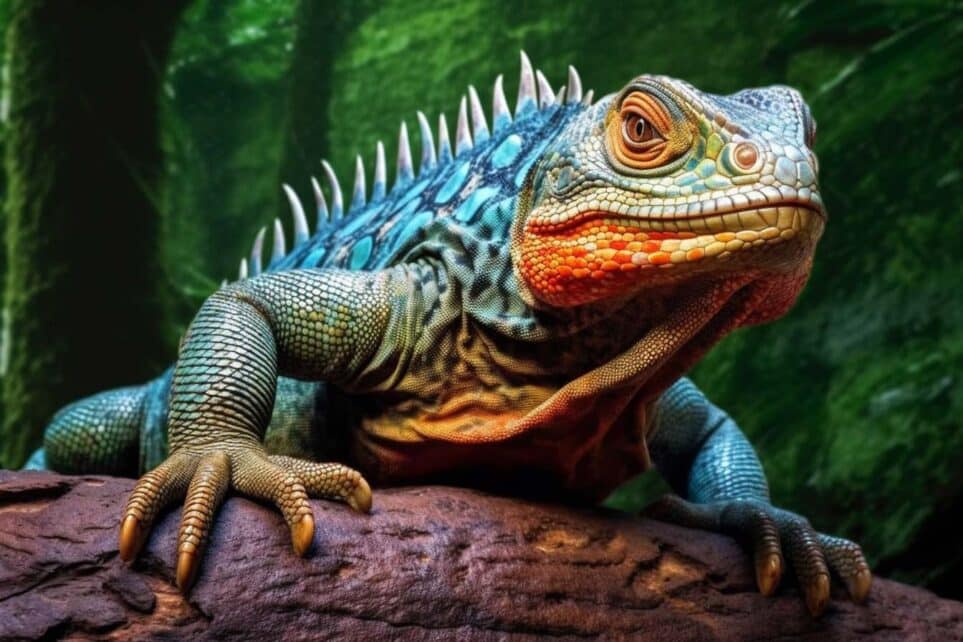Iguanas are fascinating creatures that have captured our imagination for centuries. These large, herbivorous reptiles are found in many parts of the world. They have several unique adaptations and behaviors that make them truly remarkable. In this article, we’ll share 10 surprising facts about iguanas that you might not know.
- Iguanas are herbivores, which means they only eat plants. Their diet includes leaves, flowers, fruits, and other vegetation.
- There are over 35 species of iguanas, and they can be found in various habitats, from tropical rainforests to deserts.
- Iguanas have a unique adaptation called a third eye, located on the top of their head. This eye is sensitive to light and helps the iguana detect environmental changes.
- Iguanas are excellent climbers, using their sharp claws to grip tree branches and other surfaces.
- Some species of iguanas, such as the Galapagos Islands marine iguana, can forage for food underwater.
- Iguanas have a highly efficient digestive system that allows them to extract as much nutrition as possible from their food.
- Iguanas are cold-blooded, which means they rely on external heat sources to regulate their body temperature. They can often be seen sunning themselves on rocks, walls, and other surfaces.
- Female iguanas lay clutches of eggs containing up to 70 eggs. Depending on the temperature, these eggs hatch after about 10-15 weeks.
- Iguanas are not venomous but have sharp teeth and can deliver a painful bite if provoked.
- Suppose you have an iguana problem in your yard or home. In that case, it’s important to contact a licensed wildlife removal service provider, such as Wildlife Removal Services of Florida (phone: 561-212-9255), to handle the situation safely and humanely.
In summary, iguanas are remarkable creatures with several unique adaptations and behaviors. Whether you encounter them in the wild or as pets, it’s important to appreciate and respect these fascinating reptiles. By learning more about iguanas and their role in the ecosystem, we can better understand and protect them for future generations.

